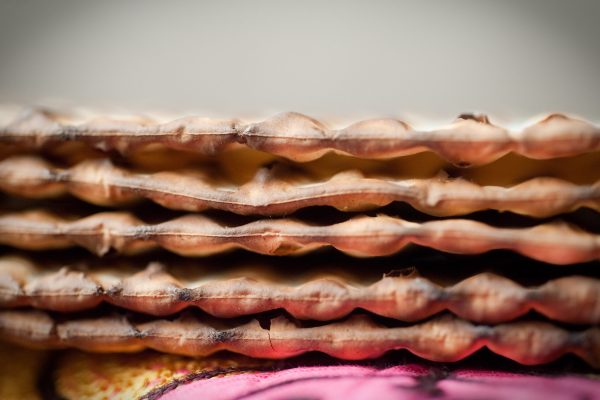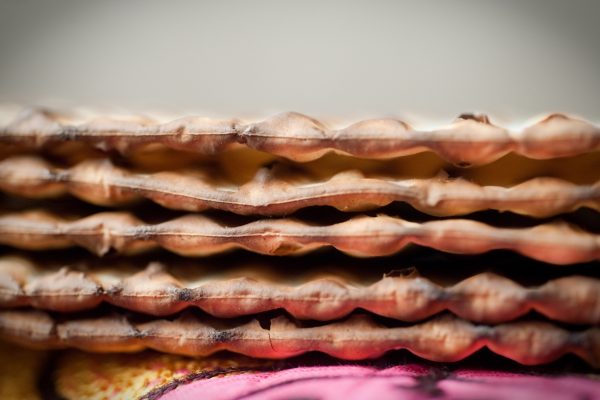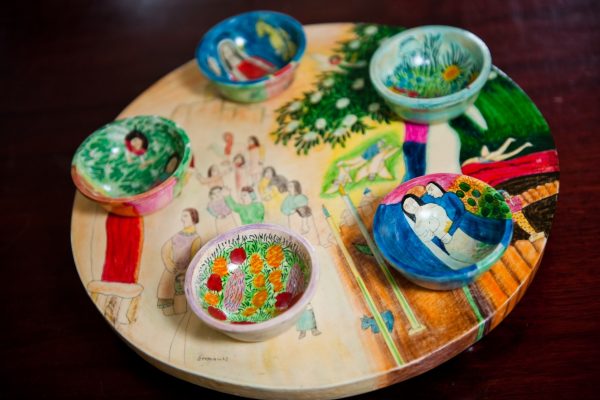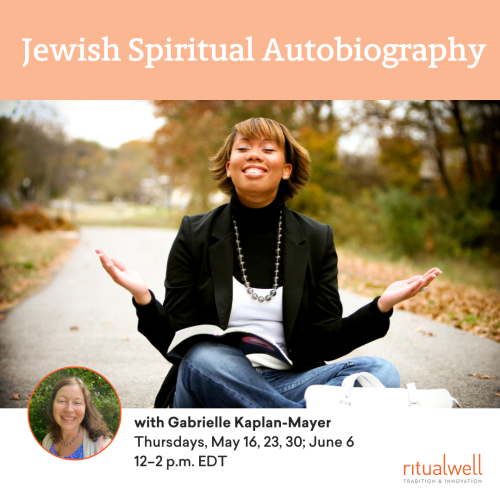Rabban Gamliel taught: If on PassoverPassover is a major Jewish holiday that commemorates the Jewish people's liberation from slavery and Exodus from Egypt. Its Hebrew name is Pesakh. Its name derives from the tenth plague, in which God "passed over" the homes of the Jewish firstborn, slaying only the Egyptian firstborn. Passover is celebrated for a week, and many diaspora Jews celebrate for eight days. The holiday begins at home at a seder meal and ritual the first (and sometimes second) night. Jews tell the story of the Exodus using a text called the haggadah, and eat specific food (matzah, maror, haroset, etc)., you do not explain these three things, you have not fulfilled your obligation:
The Passover Sacrifice – PesachPassover is a major Jewish holiday that commemorates the Jewish people's liberation from slavery and Exodus from Egypt. Its Hebrew name is Pesakh. Its name derives from the tenth plague, in which God "passed over" the homes of the Jewish firstborn, slaying only the Egyptian firstborn. Passover is celebrated for a week, and many diaspora Jews celebrate for eight days. The holiday begins at home at a seder meal and ritual the first (and sometimes second) night. Jews tell the story of the Exodus using a text called the haggadah, and eat specific food (matzah, maror, haroset, etc).
The Unleavened Bread – MatzahThe unleavened bread eaten on Passover that recalls the Israelite's hasty escape from Egypt when there was no time for the dough to rise. Matzah is also considered the "bread of our affliction," eaten while we were slaves.
The Bitter Herbs – MarorBitter herbs eaten at the Passover seder to recall slavery in Egypt
The Passover Sacrifice – What We Gave Up to Survive
In order to survive I sacrificed a great deal.
I sacrificed a dream of happily ever after.
I continue to sacrifice instant gratification of my dreams.
I gave up my home, my belongings, and the city I loved.
I gave up my pet, my little dog.
Initially, we lost nearly our entire support system.
My greatest sacrifice has been full-time motherhood.
But I did not give up my marriage – he did that.
The Matzah – What We Must Have to Survive
Our ancestors did not have time to let their bread rise when fleeing Egypt. The matzah, unleavened bread, reminds us of their haste. It is the minimal sustenance they took with them in order to survive. I found the sustenance I needed to survive in a wide variety of places – from the kind woman at the food bank who treated me like a human being and snuck me soy milk every week, to the Domestic Violence program that helped me find clothes, to the group who paid for my eye exam and glasses. Sometimes a kind word from astranger, the homeless teenager who wanted to give me her only flower, the Vietnam Veteran who shared his rage at injustice with me, the homeless man who sang me a song and insisted to me that I had worth. Many days it was the animals and the children I encountered who lifted my spirits with their presence and kept me pressing on. I suppose the sustenance that I need to survive is within. I was born with it. It is supported by the understanding of others with similar experiences.
The Maror – What We Need to Remember to Ensure Our Survival
The bitter herbs remind us of the bitterness of slavery that our ancestors endured. Although it is unpleasant to dwell on that part of my past, in remembering the abuse and being mindful of how it began, what it was like, and the effect it has had on my life, I gain the strength and perseverance to not let it happen again. It is my own personal “Lest we forget.”
My abuser continues to try to convince me that he has changed, that he is different, kind. non-abusive. If I did not have the memories of being threatened with a gun or a knife, being pushed to the ground, then what would keep me from returning? Remembering is not dwelling. It is taking responsibility.
At some point, remembering my pain will also be a reminder of how far I have come.
Excerpted from A Journey Towards Freedom: A HaggadahLit. "Telling.” The haggadah is the book used at the seder table on Passover to tell the story of the Exodus, the central commandment of the holiday. It is rich in song, prayer, and legend. There are many different version of the Haggadah produced throughout Jewish history. for Women Who Have Experienced Domestic Violence, published by FaithTrust Institute, Copyright 2003, FaithTrust Institute. Used with permission. To purchase copies of the Haggadah, call 877-860-2255 or see www.faithtrustinstitute.org.












